
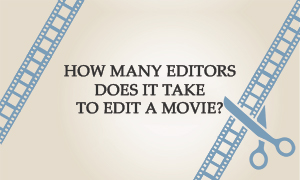 Recently, I’ve been covering topics that could be described as ‘inside baseball’, eg they are very technical or mainly for people deep within the film industry. I don’t intend to stop doing this, but I also want to address questions I get from film fans and people who are just curious about how the industry works.
Recently, I’ve been covering topics that could be described as ‘inside baseball’, eg they are very technical or mainly for people deep within the film industry. I don’t intend to stop doing this, but I also want to address questions I get from film fans and people who are just curious about how the industry works.
Today’s question is just such a question. Kevin emailed to ask:
I just re-watched Avatar and noticed that the film had three editors. Is that normal?
I can’t answer about what’s normal (very little of what we do in the film industry can be described as normal!) but I can look at what’s typical.
How many editors typically edit a movie?
I built a dataset of all movies that had grossed at least $1 at the US box office over the past twenty years (7,617 movies in total) and looked at the editor credits. Over this period, 77% movies only had one editor.
However, this topline figure hides the change in recent years. Between 1997 and 2011, between 81% and 75% of movies only had one credited editor, whereas in recent years the number has fallen (68% in 2016).
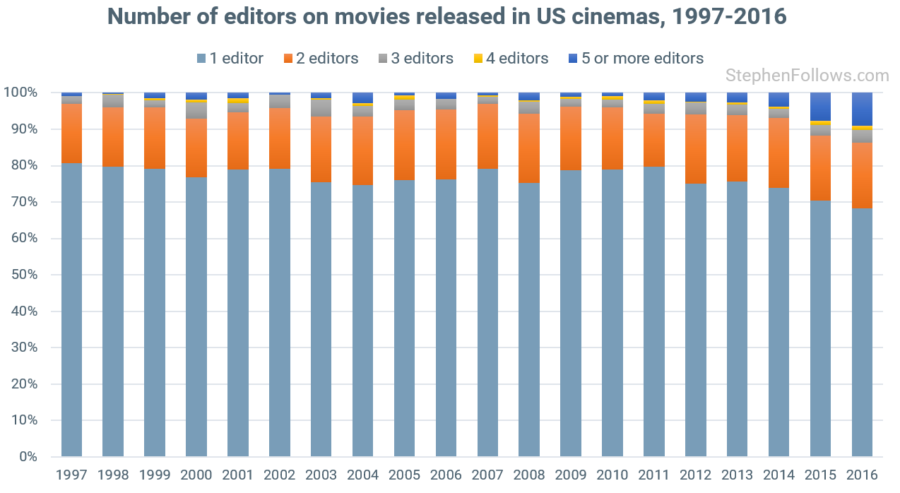
A Comedy #shortfilm based on Husband & Wife relationship featuring #seemapahwa, Written & Directed by Sachin Gupta. Streaming Now! #shortfilm ...
WE RECOMMEND THE VIDEO: Hindi Comedy Short Film- Manoharji Ki Nimmi l Seema Pahwa l Husband and Wife Relationship
Movies with a very large number of editors (i.e. above five) tend to be compilation movies such as ABCs of Death 2 (22 editors), Movie 43 (13 editors), The ABCs of Death (11 editors), New York, I Love You (8 editors) and Paris, je t’aime (8 also).
What genres of movie are more likely to have multiple editors?
The question for today’s research was sparked by Kevin noticing the multiple editors on Avatar. This leads me to wonder: how relevant is the fact that Avatar is a Sci-Fi Action film to the fact it had multiple editors?
Well, it seems that the number of editors and the genre of a movie are indeed correlated. Over a third of Sci-Fi movies have more than one editor, compared to just 15% of musicals.
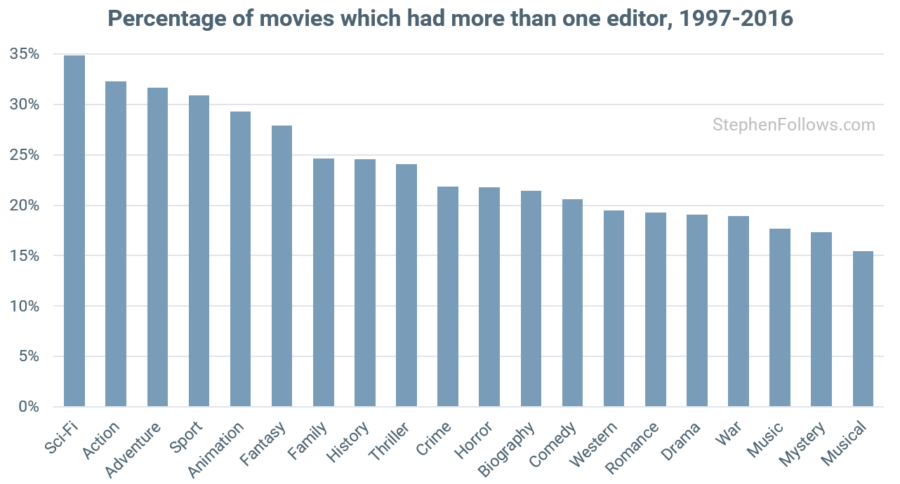
How many movies does the typical editor edit?
Within my dataset (i.e. the 7,617 feature films which grossed at least $1 in US cinemas between 1997 and 2016), the most frequently hired editors were Pietro Scalia and Chris Lebenzon, with 24 credits each. However, their experiences are not typical, with just over half (56%) of the editors never having cut a second film. In fact, fewer than 5% of editors have edited more than ten movies in the twenty years I studied.
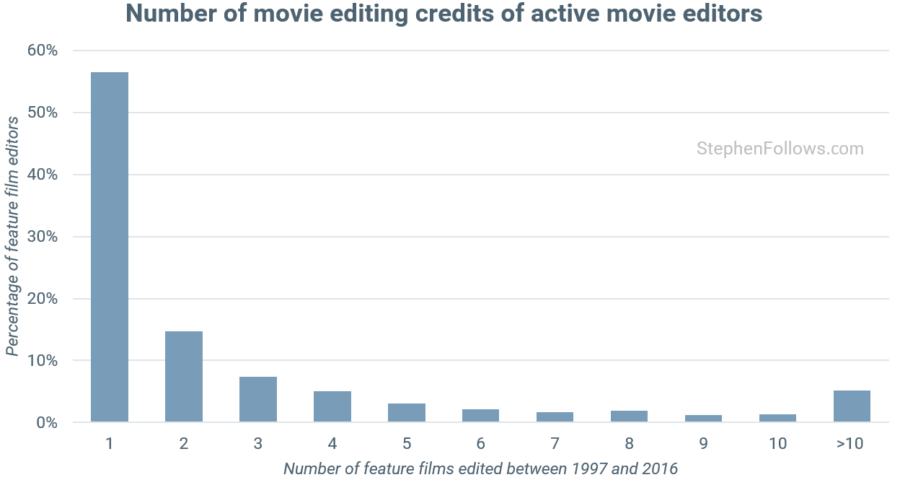
Many editors who cut movies will also cut other media, such as television, music videos, online content, etc. This means that although most movie editors have only edited one movie, it doesn’t mean they’re not actively editing other content.
The next generation of editors
One clear trend in editor credits is the decline in the number of films with apprentice editors. In 1998, 23% of films had an apprentice, whereas in 2016 that figure was just 4%.
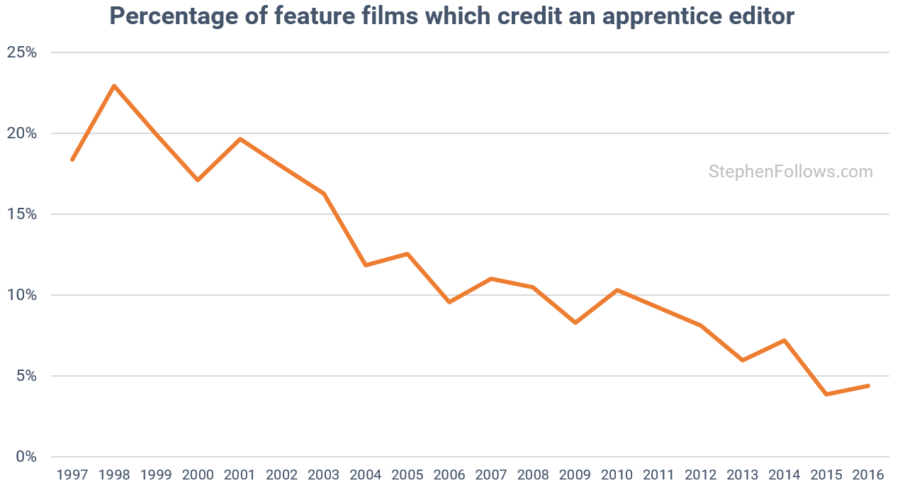
It’s possible that the apprenticeship model of education is less relevant than in previous decades, due to the proliferation of home-based editing suites, meaning that new editors can teach themselves. If there are any professional editors reading this, then please can you chip in with your opinion of how the industry is doing to prepare the next generation of slashers and cutters.
Notes
In this article when I refer to an editor I am talking about someone whose credit on the movie appeared as ‘Editor’ or ‘Editing by’. However, there are a number of lower credits which imply that other forms of editing work was performed by the person. These credits tend to get relegated to the ‘Editorial Department’ on credit sites such as IMDb. For example, Debra Neil-Fisher has 21 credits as ‘editor’ but a further seven as “additional editor” on major movies. In addition, this research is only looking at who has been credited, not the amount of time they worked on the project or how important their contribution was to the overall film.
I used Wikipedia, IMDb and The Numbers to build up my data based on credits and accompanying data, such as box office and genres.
Epilogue
As always, if any reader has a useful contribution to the topic, please do leave it in the comments. I often find that strange things that have popped up in the data can be explained and expanded upon by experts in the field sharing their experiences.